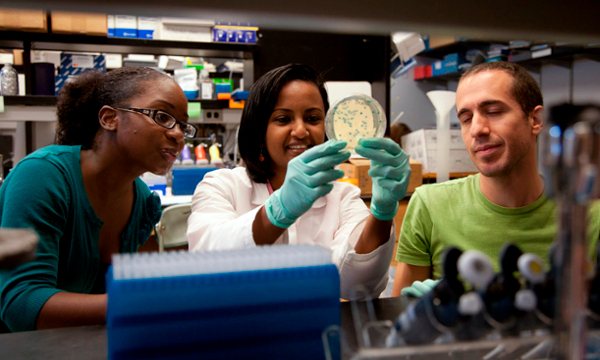Deanna A Kulpa, PhD
 |
Associate Professor, Department of Pathology and Laboratory Medicine, School of Medicine
Graduate Programs
- Full Member - Immunology and Molecular Pathogenesis
- Full Member - Microbiology and Molecular Genetics
Education
Postdoctoral, University of Michigan, 2012PhD, University of Michigan, 2005
BS, Michigan State University, 1997
Contact Information
Email: deanna.kulpa@emory.edu
Phone: 404-727-4801
Address:
Emory National Primate Research Center, Room 3109
Emory Vaccine Center Building
954 Gatewood Road NE
Atlanta, GA 30329
Treatment with antiretroviral therapy (ART) has dramatically improved the clinical outcome of HIV infection. However, ART interruption almost invariably results in rapid viral rebound in HIVinfected individuals. As such, a treatment that can eradicate or functionally cure HIV infection has remained elusive. The persistence of HIV infection under ART is due to a reservoir of latently infected cells that remain indefinitely despite full suppression of virus replication. HIV latency is triggered by several mechanisms that lead to the silencing of virus expression including epigenetic DNA modification through methylation and histone deacetylation, limited availability of critical transcription factors and inefficient elongation of the nascent viral transcripts. The goal of my research is to understand the mechanisms responsible for the establishment and maintenance of the HIV reservoir under ART in order to develop novel approaches for HIV eradication.
It has been demonstrated that CD8+ T cells inhibit virus replication during untreated HIV/SIV
infection. However, the mechanisms responsible for this antiviral effect remain poorly understood which include the direct killing of HIV/SIV-infected cells (i.e., cytotoxic T lymphocyte, CTL, activity) as well as non-cytolytic mechanisms. My research focuses on the role of CD8+ lymphocytes in cooperating with ART to maintain virus suppression and silencing HIV expression. My laboratory employs novel in vitro as well as ex vivo model systems to explore the potential mechanisms by which CD8+ T cells may enable the establishment and persistence of HIV latency. Understanding the mechanisms controlling HIV/SIV reservoir dynamics under ART is critical to design effective strategies to reduce the size of these reservoirs and promote HIV/SIV remission. This point is central to the approach towards an HIV cure that has been termed "shock & kill" in which the "kill" represents immune-mediated elimination of cells that were induced to express HIV antigens via the "shock" action of a latency reversing agent. In this context, there is significant theoretical and practical interest to explore the effect of CD8+ T lymphocytes on the establishment and maintenance of HIV latency. Our research will provide novel information that will guide future experiments of in vivo manipulation of this putative "pro-latency" effect of CD8+ lymphocytes as part of novel strategies to reduce the reservoir in ART-treated HIV-infected individuals.
It has been demonstrated that CD8+ T cells inhibit virus replication during untreated HIV/SIV
infection. However, the mechanisms responsible for this antiviral effect remain poorly understood which include the direct killing of HIV/SIV-infected cells (i.e., cytotoxic T lymphocyte, CTL, activity) as well as non-cytolytic mechanisms. My research focuses on the role of CD8+ lymphocytes in cooperating with ART to maintain virus suppression and silencing HIV expression. My laboratory employs novel in vitro as well as ex vivo model systems to explore the potential mechanisms by which CD8+ T cells may enable the establishment and persistence of HIV latency. Understanding the mechanisms controlling HIV/SIV reservoir dynamics under ART is critical to design effective strategies to reduce the size of these reservoirs and promote HIV/SIV remission. This point is central to the approach towards an HIV cure that has been termed "shock & kill" in which the "kill" represents immune-mediated elimination of cells that were induced to express HIV antigens via the "shock" action of a latency reversing agent. In this context, there is significant theoretical and practical interest to explore the effect of CD8+ T lymphocytes on the establishment and maintenance of HIV latency. Our research will provide novel information that will guide future experiments of in vivo manipulation of this putative "pro-latency" effect of CD8+ lymphocytes as part of novel strategies to reduce the reservoir in ART-treated HIV-infected individuals.

Sydney Bergstresser (she/her)
Immunology and Molecular Pathogenesis
Entrance Year: 2019
Topic: HIV-1 long term persistence via BCL-2 upregulation





